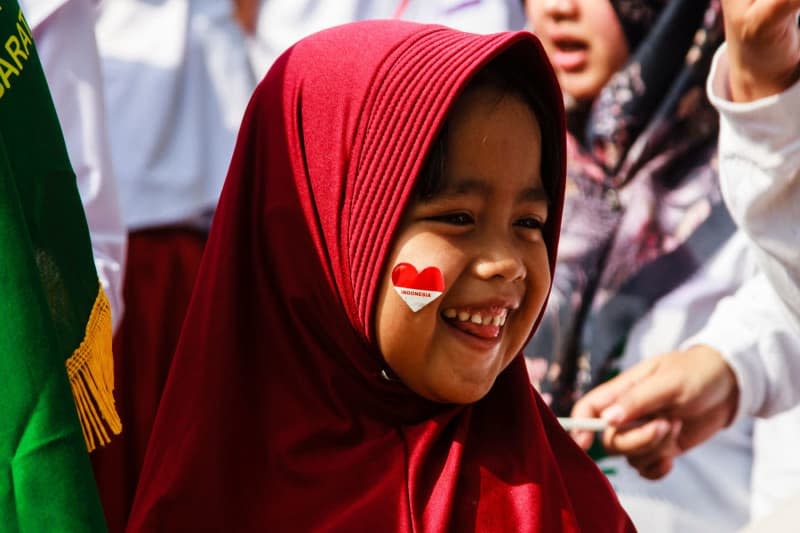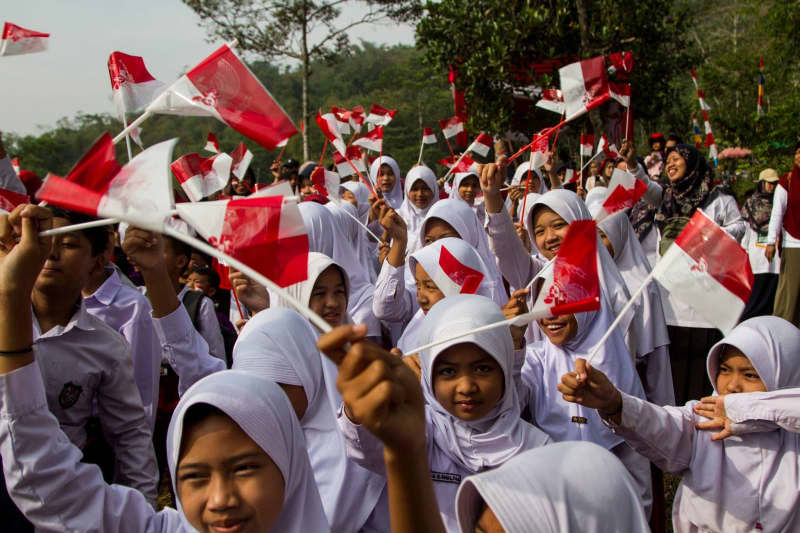Indonesia’s unfinished new capital marked its inaugural Independence Day on Saturday with a flag-raising ceremony amidst a backdrop of cranes and dusty construction sites.
Located in the forested eastern part of Borneo, the new city, called Nusantara, is envisioned as a sustainable, high-tech alternative to the overcrowded and polluted Jakarta.
While some government buildings are nearing completion, much of the essential infrastructure remains unfinished.
Outgoing President Joko Widodo, popularly known as Jokowi, led the ceremony, along with President-elect Prabowo Subianto, who is due to assume office in October.
A separate ceremony was held in Jakarta, led by Vice-President Maruf Amin and vice-president elect Gibran Rakabuming Raka.
“We can see how magnificent the capital of Nusantara is,” host of the televised event, Dewi Kumala, gushed. “Not only does it showcase a strong cultural essence, but the Garuda Palace in Nusantara also incorporates a green building concept. It is not only grand but also beautiful.”
The ambitious $32 billion project has faced numerous challenges, including delays, land acquisition issues, and a lack of enthusiasm from foreign investors.
Critics have labelled it a “white elephant” as Jokowi strives to create a lasting legacy, while environmentalists warn of potential ecological disaster.
Jokowi has urged caution regarding the relocation of civil servants to Nusantara.
An initial group of about 1,700 government workers is scheduled to move in September, but the full transition may take longer, officials said.
“The plan is still for September, but we don’t want to rush it,” Jokowi said this week. “If preparations are not complete, we may postpone it.”
The relocation involves the construction of 47 residential towers for civil servants, with 21 already completed. A three-phase strategy is in place, including a recruitment drive with over 40,000 positions earmarked for central government institutions in Nusantara.
Despite the challenges, Jokowi remains optimistic about the project, citing foreign investment interest. Prabowo, his successor, has also pledged to continue and accelerate Nusantara’s construction.
“Prabowo actually wants to speed up the development,” Jokowi told reporters on Wednesday.
“I told him that building Nusantara will take 10, 15, 20 years. He responded, ‘That’s not fast enough; I want it done in four, five, six years.’ It’s up to him.”
Jubaidah, a resident whose land is set to be acquired for the project, did not share the enthusiasm of those attending the ceremony.
Although the government has promised her and others compensation for crops and plants, she said the amount offered was inadequate to buy new land in an area where prices have surged due to the project.
“Their presence is meaningless if they ignores the plight of people here,” she said, referring to those affected by the project.











